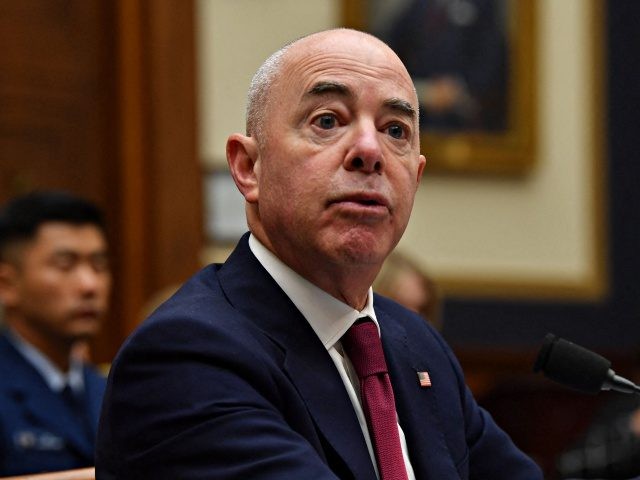The Department of Homeland Security (DHS) secretly maintains a domestic intelligence program that allows agency officials to interview willing Americans without their lawyers present, raising civil liberties concerns, according to a report.
The secret program is called the “Overt Human Intelligence Collection Program” and enables the federal government to interview Americans in prison and jail, along with illegal migrants at immigrant detention centers, according to a trove of internal DHS documents reported by Politico:
Under the domestic-intelligence program, officials are allowed to seek interviews with just about anyone in the United States. That includes people held in immigrant detention centers, local jails, and federal prison. DHS’s intelligence professionals have to say they’re conducting intelligence interviews, and they have to tell the people they seek to interview that their participation is voluntary. But the fact that they’re allowed to go directly to incarcerated people — circumventing their lawyers — raises important civil liberties concerns, according to legal experts.
According to the report, an unnamed employee in the trove of documents allegedly said that the Overt Human Intelligence Collection Program’s office “is ‘shady’ and ‘runs like a corrupt government.’” A second document reportedly showed employees also claimed the program raised so many red flags that they wanted the program to pay for legal liability insurance.
Carrie Bachner, a former DHS undersecretary for intelligence, told Politico if the secret intelligence program exists to question Americans, it is immoral.
“I don’t know any counsel in their right mind that would sign off on that, and any member of Congress that would say, ‘That’s OK,’” Bachner said. “If these people are out there interviewing folks that still have constitutional privileges, without their lawyer present, that’s immoral.”
“What do they do with that information they collect, and is it legal?” Bachner questioned. “Where do they store that information?”
Politico reported a major theme in the internal documents was that many program employees worried they were breaking the law, which raised disputes about how United States law applies to the program’s interactions with Americans.
Follow Wendell Husebø on Twitter @WendellHusebø. He is the author of Politics of Slave Morality.

COMMENTS
Please let us know if you're having issues with commenting.